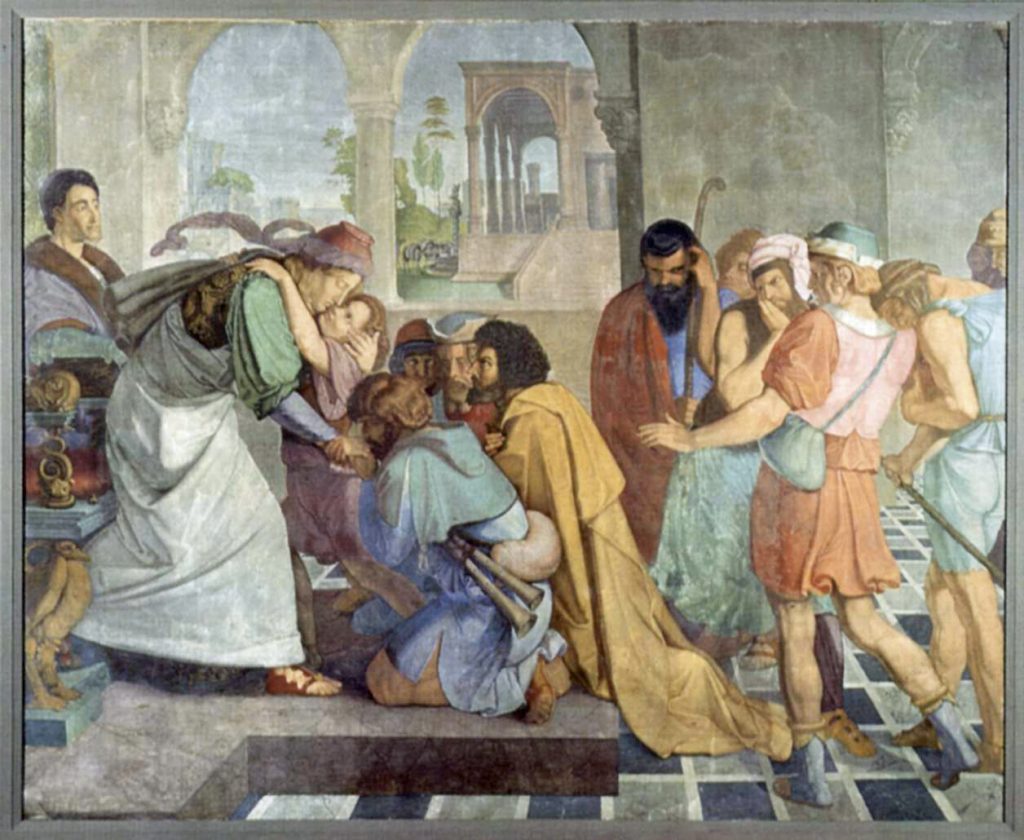
“Vayigash” {ויגש} (Hebrew for “and he drew near”) is the eleventh weekly Torah portion (parashah {פרשה}) in the annual Jewish cycle of Torah reading. It is found in Genesis 44:18–47:27.
The parashah begins with one of the most dramatic speeches in the Book of Genesis. This is Judah’s speech, when trying to convince Joseph to let Benjamin free:
“Then Judah went up to him and said, “Oh, my lord, please let your servant speak a word in my lord’s ears, and let not your anger burn against your servant, for you are like Pharaoh himself. My lord asked his servants, saying, ‘Have you a father, or a brother?’ And we said to my lord, ‘We have a father, an old man, and a young brother, the child of his old age. His brother is dead, and he alone is left of his mother’s children, and his father loves him.’ Then you said to your servants, ‘Bring him down to me, that I may set my eyes on him.’ We said to my lord, ‘The boy cannot leave his father, for if he should leave his father, his father would die.’ Then you said to your servants, ‘Unless your youngest brother comes down with you, you shall not see my face again.’ “When we went back to your servant my father, we told him the words of my lord. And when our father said, ‘Go again, buy us a little food,’ we said, ‘We cannot go down. If our youngest brother goes with us, then we will go down. For we cannot see the man’s face unless our youngest brother is with us.’ Then your servant my father said to us, ‘You know that my wife bore me two sons. One left me, and I said, surely he has been torn to pieces, and I have never seen him since. If you take this one also from me, and harm happens to him, you will bring down my gray hairs in evil to Sheol.’ “Now therefore, as soon as I come to your servant my father, and the boy is not with us, then, as his life is bound up in the boy’s life, as soon as he sees that the boy is not with us, he will die, and your servants will bring down the gray hairs of your servant our father with sorrow to Sheol. For your servant became a pledge of safety for the boy to my father, saying, ‘If I do not bring him back to you, then I shall bear the blame before my father all my life.’ Now therefore, please let your servant remain instead of the boy as a servant to my lord, and let the boy go back with his brothers. For how can I go back to my father if the boy is not with me? I fear to see the evil that would find my father.” (Genesis 44: 18-34).
This unique situation, between Judah and Joseph, drew the attention of the Midrash {מדרש} (an ancient Jewish tradition) that asked: where are the rest of the brothers? Why did they leave Judah to stand up alone against Joseph?
The answer is found in this text in a conversation between two kings – who will play a crucial role in the future: Judah’s descendants are the house of King David and Joseph’s descendants are the kings of the northern kingdom (Kingdom of Israel).
